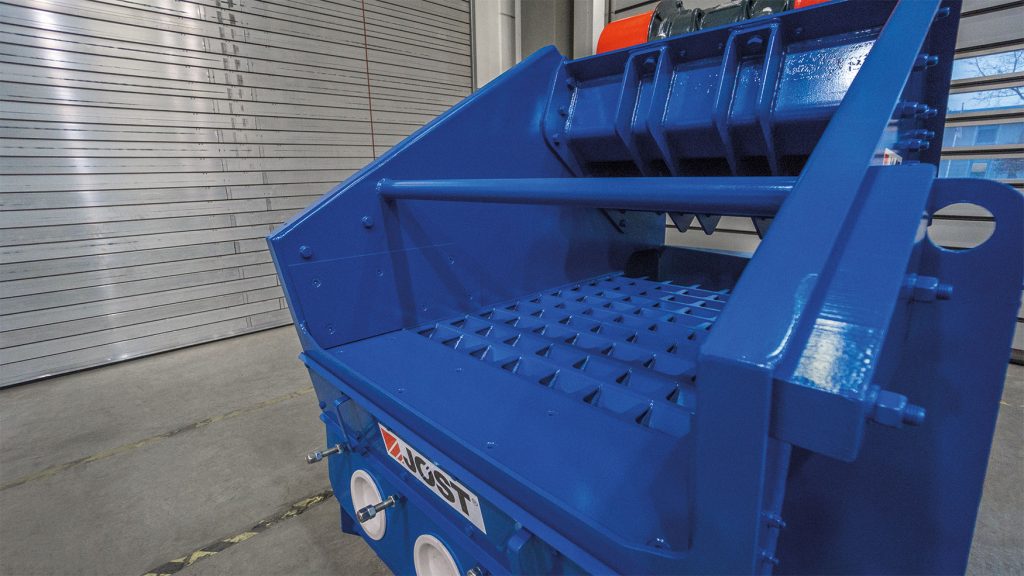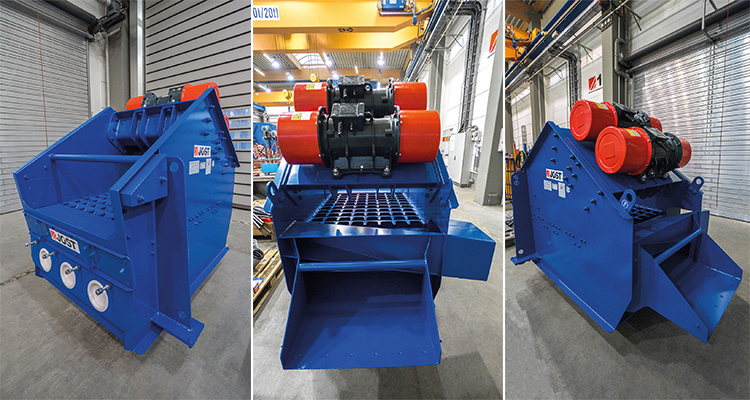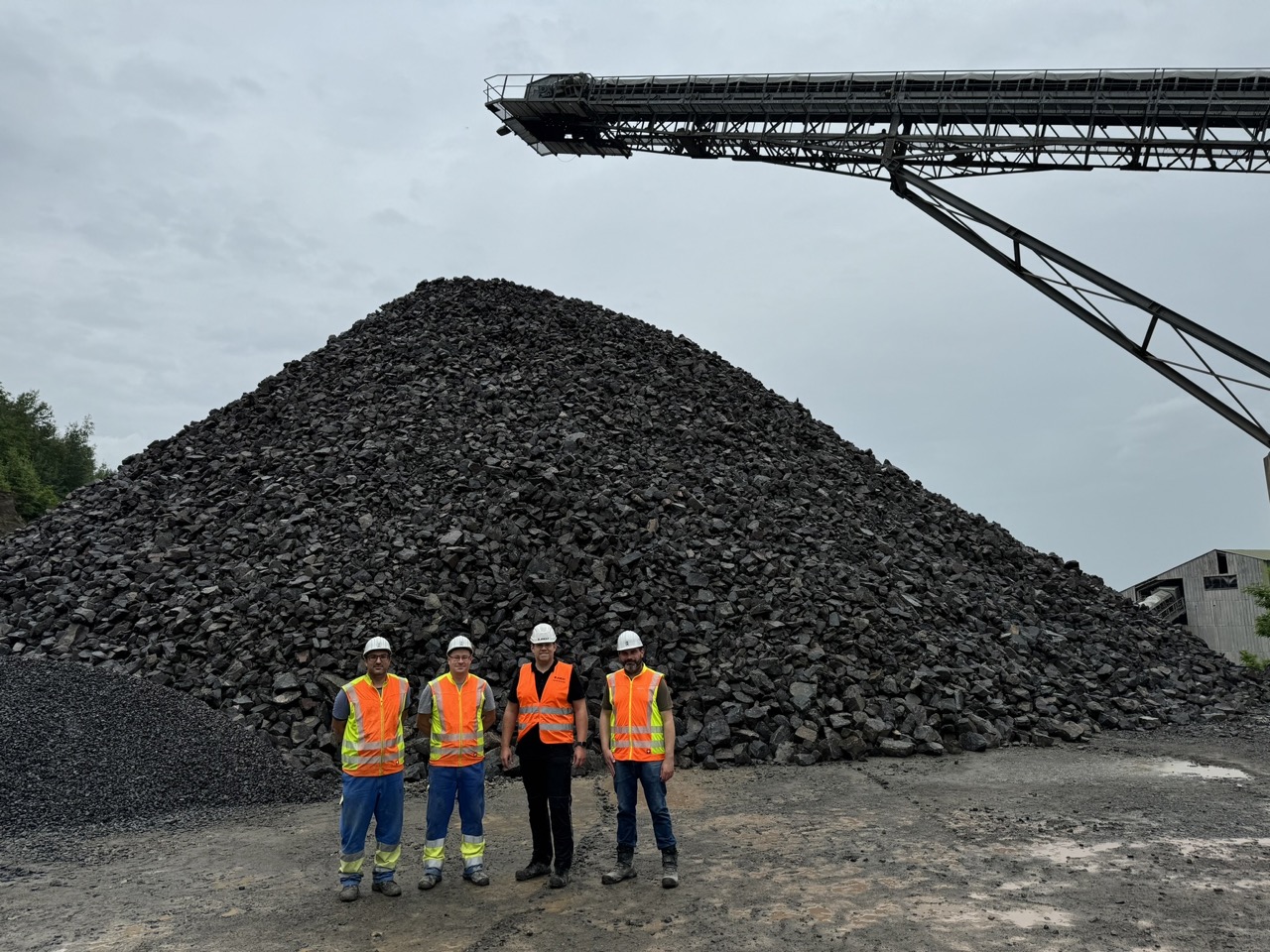RECYCLING
Small TopSpin – Great Performance

JOEST has delivered the smallest TopSpin Double-Deck Cascade Screen ever.
In October, JOEST built a TopSpin Screen with a screening area of only 1.2 m² (with a width of 1000 mm and only 1200 mm effective screen length). This screen is used for the pre-separation of metal scrap in the recycling industry.
The heavy products which are difficult to screen were separated out beforehand. The problem here was that large pieces clogged the system and excessive dust on the pieces of scrap was a burden for all workers on site. The Double-Deck Screen solved the problem by separating parts with a size of 4 – 80 mm from excessively large or small pieces. The medium sized product could then be further processed without danger in the downstream system.
One of the aims of separation is to guarantee longer intervals between cleaning the plant. The screen was modified individually to suit customer requirements and could be fitted into the confined environment with a length of only 2 metres in total.
For JOEST, even smaller screens still deliver excellent results.

Weitere Beiträge
JOEST delivered two high-performance vibrating feeder including tunnel frame, discharge chute and needle gate, each one feeding gabbro up to an edge length of 700 mm as a free stockpile discharge. Our focus was on a robust, blockage-free, wear-optimized and installation-friendly design.
Under the motto #JOESTogether, we organized for the first time an EM pack-watching on our site. It was a fantastic event where we celebrated our community and team spirit.
On the occasion of the farewell of the long-serving managing director, the entire staff of JOEST organized a collective fundraising campaign for the nearby children’s hospice Gut Feismann. A total of over 1,200 euros was collected by the #JOESTeam and ultimately rounded up to 3,500 euros by the management.
Münster
The Job Fair 2024 in Münster was a complete success for us. We are especially proud of our first-time participation as exhibitors.






